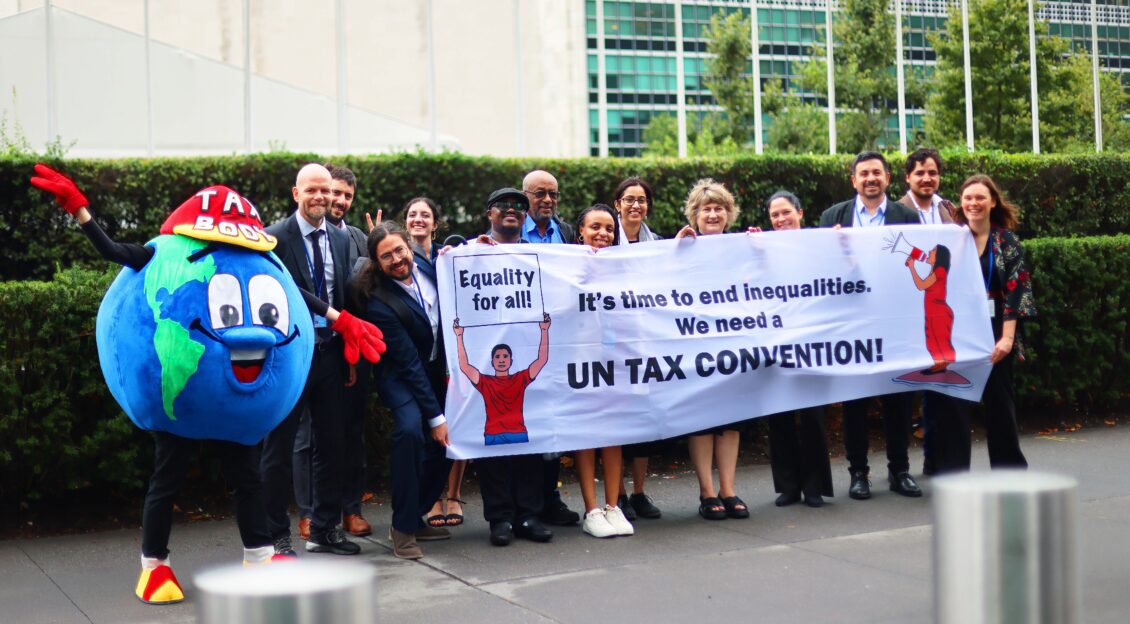Current global tax rules are deeply unjust. Countries, particularly from the Global South, cannot adequately tax profits generated in their economies due to an unfair allocation of taxing rights and rampant tax abuse. The OECD also known as the “rich countries’ club” – has been the primary institution where global tax rules have been formulated. That is, where norms and standards had been set; the negotiations leading to them had been conducted behind closed doors without transparent and publicly accessible decision-making processes. The majority of developing countries are not members of the OECD which excludes them from sitting at the OECD’s negotiating table as equals. And what is decided without universal participation cannot have the legitimacy for universal application. It is time to rewrite the global tax rules through a UN Tax Convention so that all countries can negotiate fair, effective, and efficient global tax rules on equal footing.
- In November 2023, this campaign succeeded and a majority of UN Member States voted in favour of starting negotiations to create a UN Framework Convention on International Tax Cooperation. 48 countries, mostly OECD members voted against the resolution.
- In August 2024, UN Member States finalised the Terms of Reference, the blueprint for the UN Tax Convention. The Terms of Reference mandated three legally binding agreements: a UN Tax Convention and two early protocols. This time, only 8 countries voted against the resolution.
- In November 2024, States at the UN General Assembly adopted the Terms of Reference and agreed on a roadmap to begin negotiations on the UN Tax Convention in 2025 to be done by mid-2027.
- In February 2025, States gathered for the organisational session of the UN Tax Convention negotiations, agreeing upon decision-making modalities and the choice of the second early protocol.
Campaign activities
GATJ and its members have campaigned for a decade to negotiate the global tax rules at the UN. This campaign has been a success. Now, GATJ campaigns in the negotiations for a UN Tax Convention. Under this campaign, GATJ co-coordinates the Tax Justice Workstream of the Civil Society Financing for Development Mechanism (CS FfD Mechanism). GATJ brings together civil society to make UN submissions with 200+ signatories, produce “FfD Chronicles” during UN tax negotiations highlighting the position of civil society, and makes interventions in the negotiations.
GATJ calls for a UN Tax Convention:
- Based on the principles of universality and equal participation.
- To create an inclusive global decision-making body on tax.
- To end tax havens, tax abuse by multinational corporations and the rich, and illicit financial flows.
- Which can link to development, human rights, gender equality, and environmental sustainability.
- Increase government accountability and public participation in international tax matters.
- Promote fairness for Global South countries.
- Create global coherence and reduce complexity.
